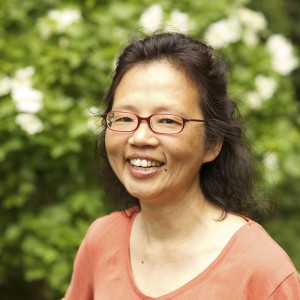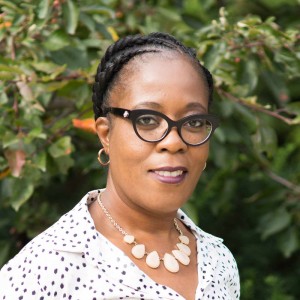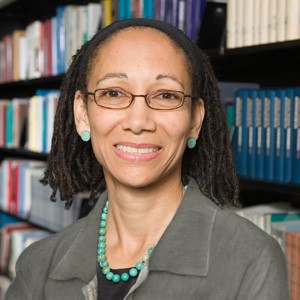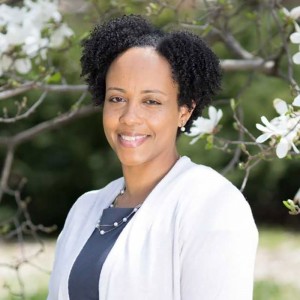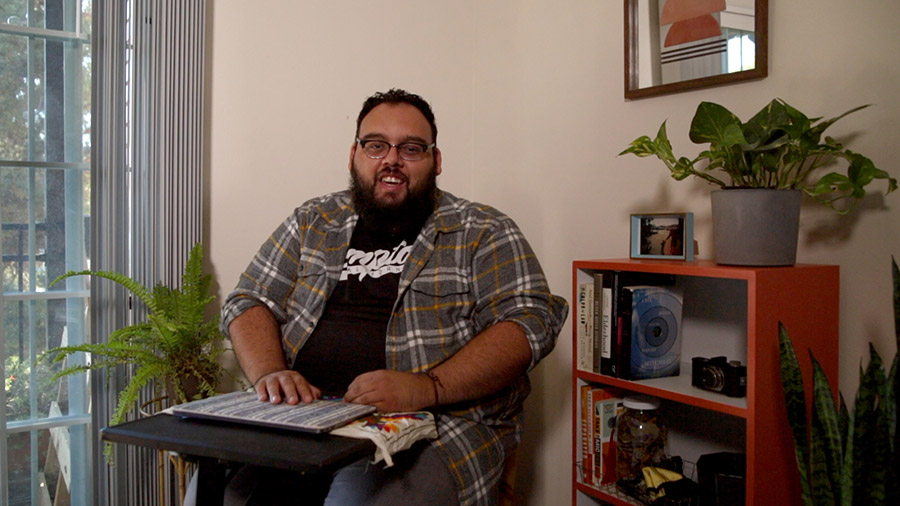
Alberto Martinez, MSW '20, talks about his work with Sage Metro Detroit developing training materials to help support LGBT+ Older Adults.
Watch the video.
Social Work Practice with Older Adults & Families from a Lifespan Perspective
The Social Work Practice with Older Adults and Families from a Lifespan Perspective pathway prepares interprofessional practice students to work with older adults and families to develop skills in using evidence-based interventions and to understand the psychosocial development across the lifespan. This pathway focuses on developing skills to assess and intervene to address social, structural, cultural, behavioral and other factors which impact the health and well-being of older adults.
Careers
Examples of career (job) titles and positions relevant to this pathway include but are not limited to:
- Adult Protective Services Worker
- Case Manager
- Community Outreach Coordinator
- Coordinator of Care (nursing home, long-term care, rehab care and dementia care units)
- Family Support Coordinator
- Hospice Care Social Worker
- Palliative Care Social Worker
- Policy Advisor
- Policy Advocate
- Program Planner
Field Experience
Types of agencies and settings where students in this pathway may engage in field learning:
- Hospitals
- Hospice Centers
- Senior Centers
- Dementia Care
- Skilled Nursing Facilities
- Senior Living Communities
- Community Based Support Programs
- Government Agencies
- Outpatient Health Clinics
- Substance Abuse Clinics
Program Details
Social Work Practice with Older Adults and Families from a Lifespan Perspective Pathway Course Requirements
Essentials
- SW505: Engaging Social Justice, Diversity, and Oppression in Social Work, 3 credits
- SW506: Essentials of Interpersonal Practice, 4 credits
- SW507: Research Basics for Social Work Practice, 1 credits
- SW508: Essentials of Social Welfare Policy, 3 credits
- SW509: Essentials of Community and Organizational Practice, 3 credits
- SW590: Introduction to Social Work Practice, 1 credits
- SW649: Practicing Policy with Current Events, 1 credits
- SW678: Program Evaluation and Applied Research, 3 credits
- SW699: Social Work Capstone, 1 credits
Pathway Requirement
- SW643: Policies Affecting Older Adults, 1 credits
- SW690: Adulthood and Aging, 3 credits
- SW694: Interpersonal Practice Methods in Aging, 3 credits
Please see course planning worksheets for a full list of courses associated with this pathway.
Competencies for Social Work Practice with Older Adults and Families from a Lifespan Perspective
University of Michigan's School of Social Work (U-M SSW) is accredited by the Commission on Accreditation (COA), of the Council on Social Work Education (CSWE). Accreditation is a system of recognizing educational programs as having a level of performance and quality that gain them the confidence of the educational community and the public. You can read more about the Educational Policy and Accreditation Standards here.
At U-M SSW, each pathway has specialized competencies that describe the knowledge, values, skills, and cognitive and affective processes that comprise the competency in each pathway area.
1. Demonstrate Ethical and Professional Behavior
Social workers demonstrate the ability to apply ethical social work principles and critical thinking to products and work produced. Social workers understand the role of emotional intelligence and professional resilience in professional and ethical practice. Social workers understand the role of other professionals when engaged in interprofessional teams within their areas of specialization. Social workers recognize the importance of life-long learning and ways that supervision and consultation can support continued development.
Practice Behaviors:
- Utilize supervision and consultation to guide professional decision-making.
- Demonstrate emotional intelligence in practice and professional situations.
- Utilize effective communication strategies appropriate to context.
2. Engage Diversity and Difference in Practice
Social workers in gerontology understand the impact of discrimination and oppression on older adults and their caregivers and identify the intersectionality of age with multiple characteristics of diversity and structural inequities throughout the life course. Gerontological social workers practice cultural humility and effectively work with diverse, older adults and their caregivers, groups, and communities.
Practice Behaviors:
- Appraise their own values related to diversity in aging.
- Analyze how diversity and oppression impact older adults and families.
- Address the cultural and spiritual histories, values and beliefs of older adults and families.
- Defend the impact of structural inequalities and the value of diversity among older adults as part of their roles on interprofessional teams and in organizations and communities.
3. Advance Human Rights and Social, Economic, and Environmental Justice
Social workers work to advance human rights and social and economic justice for older adults and their caregivers. They incorporate the historical context and the physical and social environment, including experiences of trauma and micro aggressions, which may create barriers to social, economic, and environmental justice for older adults. Practitioners in aging critically and objectively analyze how policies and programs promote or inhibit justice and use story and narrative to impact change at the micro, meso, and macro levels. As members of interprofessional teams, they engage other disciplines to recognize such contextual and environmental barriers and ensure that older adults are aware of their rights. Aware of ageism and other institutionalized biases, they practice cultural humility and address discriminatory policies, practices, and language by utilizing culturally and linguistically appropriate measures and evidence-informed services and interventions.
Practice Behaviors:
- Engage older adults, their caregivers, and other constituencies to become aware of their rights to available resources and how they relate to social, economic, and environmental inequities.
- Participate in system changes at all levels to promote well-being for and among older adults.
- Empower individuals and groups within local communities, including older adults themselves, to advocate for social, economic, and environmental justice for all older adults and their caregivers.
4. Engage in Practice-informed Research and Research-informed Practice
Social workers in aging value their essential role in using knowledge and evaluating research. They identify critical gaps and promote the adoption of evidence-based practice in organizations working with, and on behalf of, older adults and their caregivers. They integrate social behavioral approaches to aging research with knowledge from their practice. Gerontological social workers recognize factors that affect the inclusion of older adults’ participation in research and understand how evaluation processes within organizations can contribute to broader knowledge-building within social work and aging.
Practice Behaviors:
- Understand and build practice knowledge central to maximizing the well-being of older adults and their caregivers.
- Adopt, modify, and translate evidence-based practices that are most appropriate to particular aging-focused practice settings and populations.
5. Engage in Policy Practice
Social workers understand how to analyze, formulate, and advocate for policies that advance human rights and social, economic, and/or environmental justice through the application of critical thinking skills. Social workers are able to identify how current events are linked to policy issues, how to critically analyze and understand policy implications, and apply strategies to engage in policy practice that effect change and advocate for clients.
Practice Behaviors:
- Identify how current events are linked to policy issues impacting clients and client systems.
- Analyze the implications of policy across service systems.
- Identify strategies to engage with policy to advocate for clients and client systems.
6. Engage with Individuals, Families, Groups, Organizations, and Communities
Social workers in aging engage older adults, caregivers, and related systems by understanding and applying a range of appropriate theories. To foster this engagement, gerontological social workers interpret the diverse life courses (including resilience, contributions, and strengths) of older adults and consider cohorts and contexts in which they have lived. They also recognize how their own life trajectory influences their engagement with diverse older adults and their constituents.
Practice Behaviors:
- Understand and use knowledge central to maximizing the well-being of older adults and their caregivers.
- Adopt, modify and translate evidence-based/informed practices that are most appropriate to particular aging-focused practice settings and populations.
7. Assess Individuals, Families, Groups, Organizations, and Communities
Practitioners in aging utilize ecological-systems theory, a strengths-based and person/family-centered framework to conduct assessments that value the resilience of diverse older adults, families, and caregivers. They select appropriate assessment tools, methods and technology, and evaluate, adapt, and modify them, as needed, to enhance their validity in working with diverse, vulnerable and at-risk groups. The comprehensive biopsychosocial assessment takes into account the multiple factors of physical, mental and social well-being needed for treatment planning for older adults and their families. They develop skills in interprofessional assessment and communication with key constituencies to choose the most effective practice strategies. Gero social workers understand how their own experiences and affective reactions about aging, quality of life, loss and grief may affect their assessment and resultant decision-making.
Practice Behaviors:
- Conduct assessments that incorporate a strengths-based perspective, person/family-centered focus, and resilience while recognizing aging-related risk.
- Develop, select, and adapt assessment methods and tools that optimize practice with older adults, their families, caregivers, and communities.
- Use and integrate multiple domains and sources of assessment information and communicate with other professionals to inform a comprehensive plan for intervention.
8. Intervene with Individuals, Families, Groups, Organizations, and Communities
Practitioners aim to promote wellness, build aging-friendly communities, empower older adults to manage their chronic conditions, optimize elders’ productive contributions to families and communities, and ensure their quality of life, including reducing social isolation, suicide, and elder mistreatment. Gero social workers address ageism and discrimination at the individual, group, community, and policy levels and aim to reduce inequality based on life-long disparities. Practitioners in aging build on comprehensive biopsychosocial assessments to plan and implement effective and culturally appropriate interventions, including peer support. They are knowledgeable about, critically analyze, and apply evidence-informed interventions as well as emerging practices. Gero social workers value and draw on strengths-based and person/family-centered approaches to ensure that interventions are consistent with mutually agreed-on goals at the individual, family, group, organizational, and community levels. They use technological resources, where appropriate, to improve quality of care. Practitioners in aging advocate to improve access, coordination, and quality across a continuum of medical, community, and social services.
Practice Behaviors:
- Promote older adults’ social support systems and engagement in families, groups, and communities.
- Provide person-centered and family-directed interventions that take account of life course disparities and are targeted to diverse populations, groups, organizations, and communities.
- Assess for quality and access a range of services, supports, and care options, including groups and technology, for older adults and families to assure optimal interdependence.
- Monitor and modify interventions as needed to respond to individual, family, and environmental challenges.
9. Evaluate Practice with Individuals, Families, Groups, Organizations, and Communities
Social workers integrate sources of knowledge—including gerontological and social work theories and research, input from constituencies, and awareness of broader societal trends—within evaluation processes. They value the role of older adults and their caregivers as contributors to evaluation and adapt research designs and measurement tools to fully include them across diverse practice settings. Practitioners in aging communicate evaluation findings and implications for improvement (e.g., financial, operational) across micro, mezzo, and macro levels of aging-focused practice and policy.
Practice Behaviors:
- Plan and conduct evaluations to continuously improve programs, policies, and practices impacting older adults and their caregivers.
- Use and translate evaluation outcomes to enhance the effectiveness and sustainability of programs, policies, and practices for an aging society.
The graduate courses listed below have been taken by previous MSW students or have been identified as being of possible interest to students in this pathway and can be taken to fulfill Pathway Required Electives. On the course planning worksheet, information regarding Pathway Required Electives is included.
There are many other courses not listed below that may be of interest and may also meet the elective requirement. If you identify a pathway-related course not listed below that you want to take to meet your Pathway Required Electives (rather than simply an elective), please contact the Technical Advisors ([email protected]) for approval.
Interest in courses numbered below 500 should be checked for graduate-level status since many are offered for undergraduate credit only. You can check this by contacting the department offering the course or contacting the SSW registrar ([email protected]).
In addition, some courses may be restricted, require prerequisites, not be open to social work students, and/or require instructor permission. If you encounter problems registering for these courses, please contact the department offering the course. The SSW registrar will not be able to assist with registration in outside courses because these courses are not offered by the SSW.
The courses listed below are offered in various semesters. To see if a course is offered in the term you are interested please check the SSW list of outside courses, the website of the department offering the course, or the Wolverine Access Class Search page.
If you want to use one of these non-School of Social Work courses to fulfill the Social Work Practice with Older Adults and Families Required Electives (SWrAG), you will need to fill out a course substitution to receive approval. In the "Rationale for Substitution" box you should reference this page.
Anthropology - Cultural
- ANTHRCUL 558 - Current Issues in Sociocultural Anthropology
Health Behavior & Health Education
- HBEHED 600 - Psychosocial Factors in Health-Related Behavior
- HBEHED 628 - Chronic Illness Interventions: Midlife to Older
- HBEHED 690 - Environmental Health
Health Management & Policy
- HMP 643 - Individual and Group Behavior in Health Service Organizations
Law
- LAW 673 - Family Law
- LAW 817 - Disability Law
Nursing
- NURS 522 - Frailty in Aging
- NURS 525 - Issues in Aging and Mental Health
Ross School of Business, Management & Organizations
- MO 603 - Navigating Change: Skills and Strategies for Consultants and Managers
Ross School of Business, Marketing
- MKT 614 - Social Marketing
Sociology
- SOC 475 - Introduction to Medical Sociology
- SOC 575 - Sociology of Health & Aging
Learn More About Social Work
Pathway Faculty
Student Profiles
Student Profile
Leah Fein
When Leah Fein was a child, she lived with her grandmother, who was diagnosed with Alzheimer’s disease and her great uncle, diagnosed with multiple sclerosis. Leah remembers, “They helped me understand the impact of support and autonomy on quality of life for older adults.” In high school, Leah volunteered with older adults at a hospital in Philadelphia and in college, interned with a nursing home transition program. After earning her BSW with a focus on ageing at the University of Pittsburgh, she worked for two years with low-income older adults, arranging in-home services, medical care and hospital and nursing facility discharges.
“I saw the difference it made if someone could age at home rather than in a facility,” Leah says. “I loved the direct practice experience, and I developed reciprocal relationships with my participants, which improved my own knowledge.” Leah wanted to go for her master’s in social work and in public health. “I wanted to be involved in an interdisciplinary team focused on advocating for adults’ self-determination and autonomy towards end of life, while also supporting disease management at home. It’s about your ability to maintain control and maintain a sense of purpose throughout life transitions. Often we take all that away from older adults unnecessarily.”
Leah was able to come to the University of Michigan thanks to a Dean’s Scholarship. “Those donors are the reason I am here at U-M,” Leah declares. “They have empowered me to reach my goals. I knew Michigan Social Work could challenge me and give me opportunities to make a real impact on issues I care about, but without my scholarship I would not have been able to come here. I remember the moment I got the email. I was with a participant. I told him, and he was so happy for me!”
Soon after arriving at our School, Leah had a revelation. “I thought I might focus on macro social work,” she says, “but I missed direct practice. So, I sent out some emails and connected with an older adult in a local nursing facility who needed help with discharge planning, so I have been working with him. It was nice to find out so fast that I needed to maintain my practice. This is one of many reasons Michigan is a great school. There are so many opportunities here! Every experience has added more and more to the person I am. And with this degree I can finally make the difference I want to make. I hope one day I can give back to other students who need support.”



